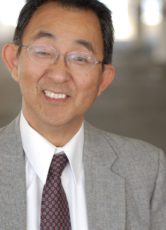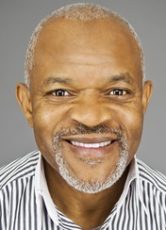Bryan Cranston’s Advice to Aspiring Actors
March 13, 2023
Bryan Cranston takes pride in the fact that he’s been a working actor for most of his life. Starting in the industry in his 20s, the Hollywood native believed there would always be actors with more talent than him, so he tried to have an edge on the competition by outworking them, as doing so was within his control. This attitude has certainly steered him well, earning him five Emmy Awards and an Oscar nod to date.
During a Team Coco interview with Conan O’Brien, Cranston responded to his Breaking Bad co-star Aaron Paul’s description of Cranston as one of “the most professional people” he’s ever worked with, but also “the most immature person” he’s ever worked with. Cranston laughed and said, “I don’t think they’re mutually exclusive. I think you can be sincere and have the things you want set up in your life, and enjoy it. Don’t take it too seriously; don’t feel you’re entitled to anything. You’re very lucky. And I think if you flow with that, you get the chance to goof around and have fun.”
The Malcolm in the Middle actor is known for giving sage advice to aspiring talent, and he offers some this time around as well. “I think it depends on how you were raised, the principles you stand by, I really do,” he asserts. “I tell actors all the time: ‘Get your personal life in order. If you really want to be an actor, you have to get your personal life in order so that you don’t flake out. You get your first job and you have a nice big paycheck, don’t go blow it on something. Put it away so … you can be an actor and make a living at it.’”
Cranston’s typical day as a leading man
Bob Odenkirk credits Cranston with helping him when he was set to front the series “Better Call Saul.” Odenkirk asked the star what his typical work day looked like while playing Walter White on the wildly popular “Breaking Bad.” Cranston advised him, “Here’s what you do. You get to set, you’ve learned your lines, you work. At lunch, you study your lines. You get to set, you work. You ask them to make you dinner, like a sandwich or something from the cart, and then you bring that home so you don’t have to make dinner because you need to work when you get home. And then you work at night, and then you go to bed. And then you do that again the next day. And then on weekends, you rehearse and learn your lines.” Odenkirk told Off Camera. “And that was reassuring. I mean I walked away from that going okay, right. You just work constantly and then you’ll be okay. And that’s what I did.”
No whining
Cranston doesn’t have the patience to hear actors complain about their jobs. He insists, “If you’re lucky enough to be in a business that you love to do, a creative one and you make a living, I don’t want to hear a complaint out of you. I don’t want to hear that you have to be there at 6:00 in the morning. We’re acting. Look at us. Every job that I work on where I lead the cast, I try to set that example. I don’t want to hear any complaints from anyone. There’s enough artistic frustration within—a joke’s not landing, this is not working, oh we need to recast because this didn’t work out. There are enough problems to deal with. You should not be dealing with any kind of problems of ‘I don’t want to be here that early,’ or ‘How late do we have to stay?’ Or some actors who don’t want to be off-camera for another actor.”
Separate acting from your personal life
The tools actors use to get into character are not necessarily helpful when applied to an actor’s personal life. Cranston cautions performers: “As an actor—and you’re trained to do this— you’re self-centered, and you should be. What does my character want? Who’s in my character’s way? How does my character get these things? What does my character feel about something? Actors find themselves in trouble if they take that self-centered nature that is good and works well for their craft, if they take that out into their personal life. What do I want? Who’s in my way?”
Want to get your acting career started? Sign up or log in to Casting Frontier and start auditioning today!
Related articles:
Jamie Lee Curtis on Her Oscar Nomination
‘The Whale’ Actor Brendan Fraser on His Comeback
‘Causeway’ Actor Brian Tyree Henry on Surrendering to the Character
Click for more Actor Interviews
Bryan Cranston’s Epiphany That Changed His Career
April 17, 2023
Bryan Cranston once shared an “epiphany” he had in his 30s that transformed his acting career. During an interview with Variety, the Breaking Bad actor shared an important shift in his mindset as it pertained to auditions and handling rejection.
Cranston recounted an audition he went on in his early 20s in which he opted to “go in character.” However, that particular character happened to be an arrogant Southerner. Unfortunately, the character’s rudeness was enough to halt the audition from even starting. A decade later, Cranston continued to feel the sting of rejection as he auditioned for commercials and guest-starring roles. A mentor then gave him valuable advice that shifted his frame of mind: Focus on process rather than outcome.
“I had an epiphany 10 years after that,” Cranston told the magazine. “It changed my life as an actor. I used to think that an audition was a job interview, but I realized I was giving up my power because I was going into an office wanting something from them. Whenever you want something from anyone, you have relinquished your power. Holding onto power in an audition is essential for an actor. You have to be able to do exactly what you want because that’s what’s required of you to impress someone with your uniqueness and what you could bring to a character. I was going in there to present an idea, an option for them. An audition became another opportunity for me to act.”
The realization empowered him as he no longer felt pressure to be validated or to get the job; rather, he was there to present casting with something—his performance, his take on the role. This enabled Cranston to focus on the process.
And sure enough, he started to land film roles. Cranston was just getting the ball rolling, so his job opportunities were limited, included playing a paramedic in Amazon Women on the Moon; and dubbing several Japanese animated movies in English. Cranston then began getting guest-starring roles in TV shows such as Matlock, Hill Street Blues, and Murder She Wrote. Soon enough, he was featured a number of times on Seinfeld.
Moving his way up the ladder, Cranston played a war-department colonel in the highly acclaimed blockbusterSaving Private Ryan (his character was the one who suggests Ryan be rescued after hearing about the deaths of his three brothers). Two years later, Cranston landed his breakthrough role as the well-meaning but immature father Hal in the Fox sitcom Malcolm in the Middle.
Cranston is best known for playing Walter White, the cancer-stricken high school chemistry teacher-turned-ruthless drug kingpin in AMC’s Breaking Bad. Not only did he star in the binge-worthy series, he earned a Golden Globe as well as four Emmys for his iconic performance. The series creator, Vince Gilligan, cast Cranston in the dark role despite AMC officials’ hesitations to go with an actor who had a six-year run playing Malcolm’s goofy dad.
In 2014, Cranston won a Tony Award for Best Performance by a Leading Actor in a Play for his portrayal of President Lyndon Johnson in All the Way. The following year, he starred as the screenwriter Dalton Trumbo in the biopic Trumbo for which he received his first Oscar nomination. Cranston took home another Tony in 2019 for his role in the stage adaptation Network, portraying a deranged anchorman Howard Beale.
Want to get your acting career started? Sign up or login to Casting Frontier and start auditioning today!
You may also like:




